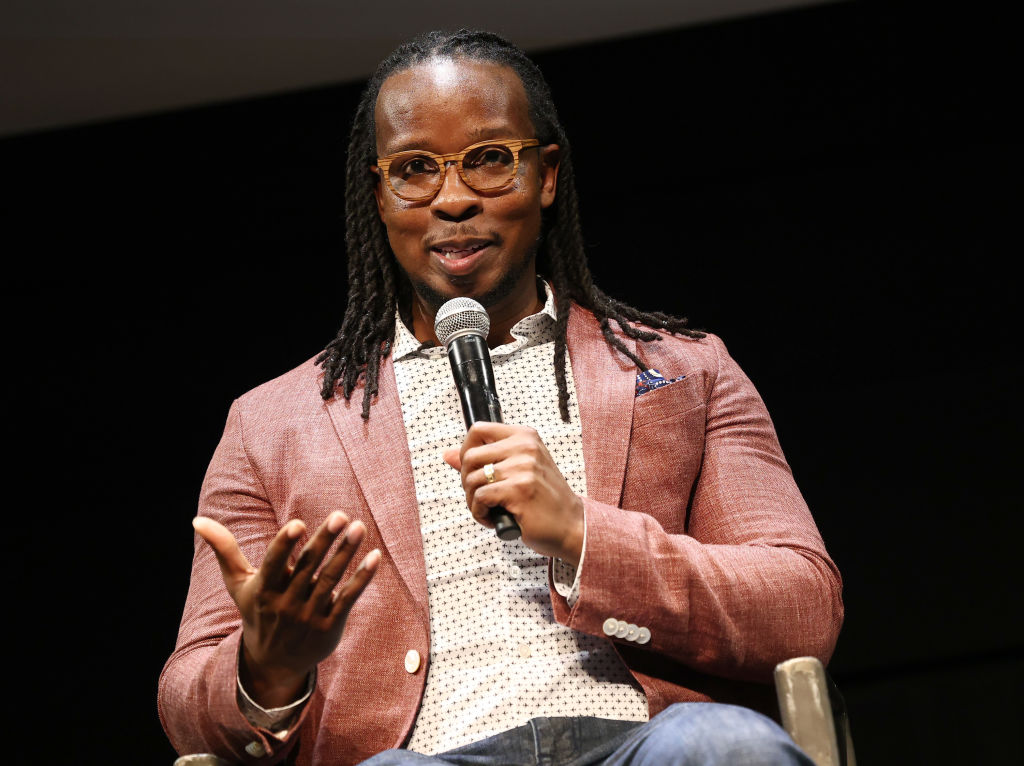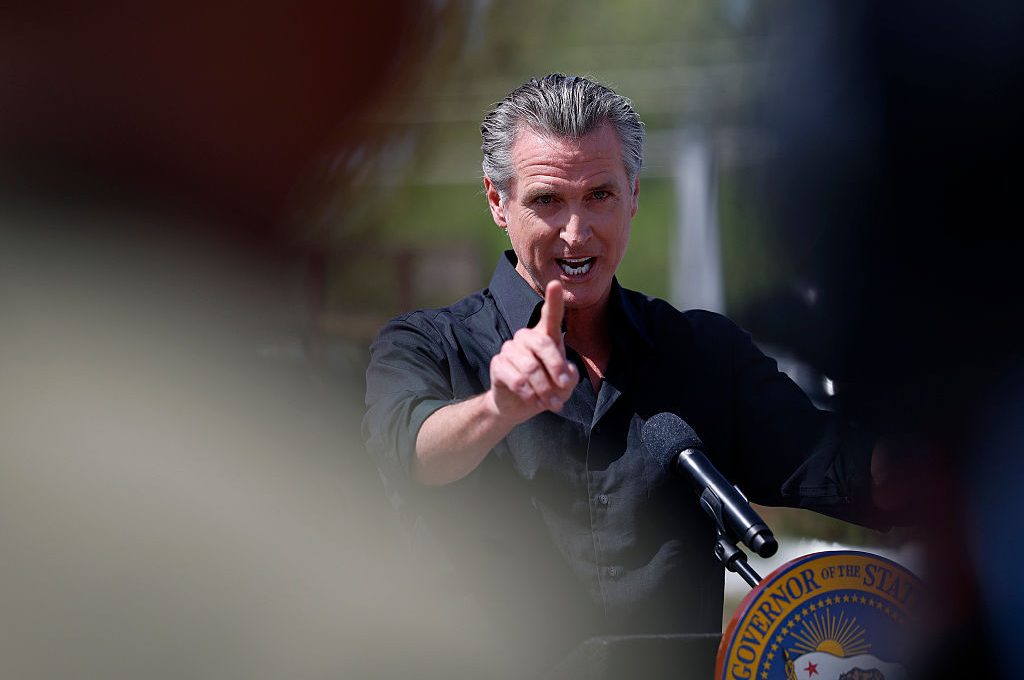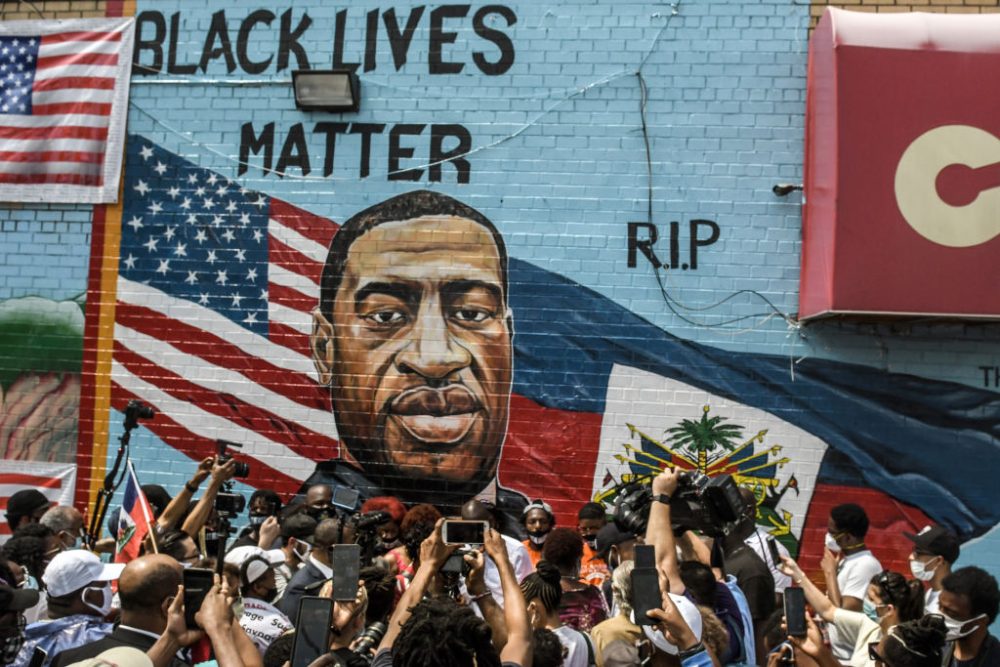Ibram X. Kendi has done as he promised. In 2020, freshly anointed as the director of Boston University’s new Center for Antiracist Research (CAR), Kendi announced his intention to “transform how racial research is done.” Previously, “research” had been understood to involve collecting data, analyzing trends and gathering new insights through the careful application of sustained thought. But these expectations were hallmarks of white supremacy. This week, as allegations of wanton mismanagement emerge from Kendi’s staff, it appears that what it means to do “racial research” has indeed been transformed: it now entails taking vast sums of other people’s money, then using it to produce almost nothing.
And in this, Kendi is an expert. Amid the orgy of performative guilt that followed the death of George Floyd, CAR amassed $43 million in funding, including a $10 million donation from then-CEO of then-Twitter Jack Dorsey. Three years later, the Boston Globe reports, the fruits of this investment include the Emancipator (an online magazine featuring such masterworks as the comicstrip Everything’s Racist) and some short essays collected over the course of a year. They conspicuously do not include a graduate degree program, an “American Antiracist Society,” or a database on racial disparities. All of these and more were supposed to materialize under Kendi’s leadership; one former staffer described the Racial Data Tracker as a “centerpiece” of the organization’s mission.
That mission is now being “transformed” as well. Last week, Kendi laid off between twenty and thirty of CAR’s employees, around half of the total. Reports from those involved indicate that the whole affair has been an exercise in burning cash. “The Center has very, very much failed to deliver on its promise,” said Spencer Piston, the faculty head of CAR’s policy branch. “It’s been a colossal waste of millions of dollars.” From the start, it barely seems to have occurred to Kendi that he would be expected to produce something in exchange for the lavish investment of funds and attention with which he’s been favored. “To the best of my knowledge, there is no good faith commitment to fulfilling funded research projects at CAR,” wrote BU Sociology Professor and former CAR employee Saida Grundy in 2021.
It’s not that Kendi tried and failed to generate meaningful scholarly output; he seems to have had no interest in doing so to begin with — and no concept of what would have been involved if he tried. Phillipe Copeland, a professor at BU’s School of Social Work who resigned from CAR in June, described his difficulty even getting a meeting with Kendi. Scheduling is a white supremacist construct, after all, and celebrity activists can’t be expected to trouble themselves with administrative minutiae while engaged in the urgent restorative justice work of publicizing children’s books. His underlings found themselves chiefly in the business of trying to get their boss’s attention, but Kendi wouldn’t even see fit to delegate his managerial responsibilities. The Center “was just being mismanaged on a really fundamental level,” Copeland said.
In other words, Kendi’s performance at Boston University has been perfectly consistent with the rest of his work: deceitful, opportunist and intellectually worthless. Ibram Henry Rogers, as he was called before he appropriated his African names, has made a career out of peddling self-serious mid-wittery to the breathless patsies of the chattering class. He already demonstrated his willingness to grab the bag and run in 2019, when he took a $50,000 donation from the Ford Foundation to produce a “racial reporting guidebook” that never saw the light of day. The well-heeled penitents at BU have now repeated this experiment at scale and obtained precisely the same results. The university is launching an inquiry into the Center’s shortcomings, but Kendi himself insists that “the work of CAR will continue.” Even if he’s wrong about that, it is unlikely that he will be altogether discredited among his most devoted acolytes. If they didn’t learn in 2019, they won’t learn now: like Charlie Brown with Lucy’s football, they will keep entrusting him with positions of authority, which he will continue to disgrace through incompetence and neglect. The perversity of incentives in this sector of the intelligentsia is such that Kendi will never lack for sinecures or fawning accolades from backers who think they deserve whatever slop he chooses to feed them. The punishment is the point.
There could be no more scathing indictment of American higher education than the fact that this debacle is unfolding at the same time as Claremont Graduate University is shuttering its storied political philosophy program. Try to conduct a close reading of Machiavelli and your days are numbered. Offer to pour money down an endless sinkhole of ideological recrimination, and the MacArthur Genius Grant is yours.
When confronted with the yawning chasm between his reputation and his output, Kendi typically responds by blaming his dupes for expecting him to be anything other than his glorious authentic self. Academics who criticize the merits of his arguments just don’t understand that true intellectuals today are “focused on the oppression of our own groups,” not on such mundanities as logic. This kind of racialized self-promotion, passed off as insight, is the grand total of what Kendi has to offer.
His point of view, such as it is, can be summarized in one sinister assertion from his most famous book, How to Be an Antiracist: “The only remedy to negative racist discrimination that produces inequity is positive antiracist discrimination that produces equity.” He has subsequently done his best to generate and encourage this “positive discrimination,” chiefly by extracting funds from anguished white liberals and redistributing them toward himself. It is an exchange that gratifies the Olympian narcissism of both parties, confirming the white liberals in their core belief that they personally will deliver America from its racist past if they just emote hard enough, and confirming Ibram X. Kendi in his core belief that America will be delivered from its racist past if everyone just gives enough money to Ibram X. Kendi. What reactionary slob would dare ask how he will use the money? The point is: it used to be yours, now it’s his. That’s justice.
Now, with the implosion of CAR, Kendi has “exploited black labor” and “silenced black voices” more egregiously than any of the supposedly villainous “systems” he sees lurking beneath the surface of American life. He resembles nothing so much as a college football coach who snags a multimillion dollar contract and then fields a hopeless team—or he would, if the coach also skipped town the night before the game—and the month before the recruiting violations came to light. But even the most dishonest D1 charlatan would not go so far as to blame his players. “There’s certainly disgruntled people who are sort of using the moment to express problems,” said Kendi in response to the complaints of his ex-employees. But by his own lights, those employees — black academics whose time has been fruitlessly wasted in service of a doomed endeavor—are now victims of Kendi’s oppression. If his critics now accuse him of “employment violence and trauma,” he has no one but himself to blame — both for using them as props in his grift, and for popularizing the fatuous rhetoric they can now deploy to condemn him.
I don’t mind admitting that the spectacular collapse of this entire fraudulent enterprise is simply delicious to me. Ibram X. Kendi promised nothing less than to “solve these intractable racial problems of our time.” Instead he made a princely living out of tearing at his native land’s most tender wounds, swanning about in high society while counseling black and white Americans alike to debase themselves with extravagant displays of twisted pseudo-piety. His interventions in our public life have been worse than useless, and anyone who continues to trust in him deserves the full measure of disappointment that he so reliably provides. Every revolution eats its own. But at least we get to watch.

























